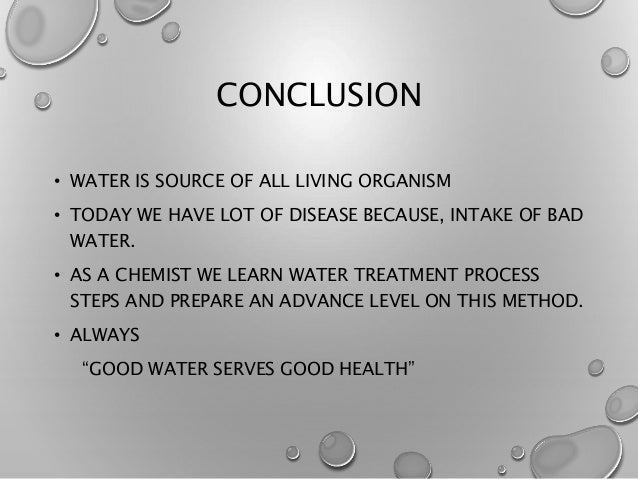Straining or deposition within the media i e.
Water filtration process ppt.
Anthracite filters associated with hot process softeners require a backwash rate of 12 15 gpm ft because the water is less dense at elevated operating temperatures.
When the filtration is started after being backwashed there will be little head loss.
Rapid sand filtration is much more common than flow sand filtration because rapid sand filters have fairly high flow rates and require relatively little space to operate.
Times new roman arial arial narrow wingdings arial black verdana generic 1 generic microsoft photo editor 3 0 photo filtration slide 2 slide 3 slide 4 slide 5 filtration mechanisms slide 7 slide 8 slide 9 slide 10 slide 11 slide 12 slide 13 diagrammatic layout of sand filters typical multimedia filter slide 16 slide 17 slide 18 slide 19 slide.
It then flows downward.
It may be define as a process of separation of solids from a fluid by passing the same through a porous medium that retains the solids but allows the fluid to pass through.
Suspended solids and solutes of high molecular weight are retained in the so called retentate while water and low molecular weight solutes pass through the membrane in the permeate filtrate.
Water softeners a water softener is a device that reduces the hardness of the water.
A water softener typically uses sodium or potassium ions to replace calcium and magnesium ions the ions that create hardness.
At ambient temperature the recommended filter backwash rate is 6 8 gpm ft for anthracite and 13 15 gpm ft for sand.
Cold water should not be used to backwash a hot process.
Filters can be categorised by the main method of capture i e.
The water level above the filter bed is usually kept at two to six feet.
Kudarha assistant professor m.
In filters with a control valve installed on the filter effluent pipe the filter flow is restricted during this time.
Rapid sand filtration is a physical process that removes suspended solids from the water.
A water filter is a device which removes impurities from water by means of a physical barrier chemical and or biological process.
In fact during rapid sand filtration the water flows at a rate up to 20 metres per.
Removal takes place by a number of mechanisms that include straining flocculation sedimentation and surface capture.
Filtration is a process that removes particles from suspension in water.

